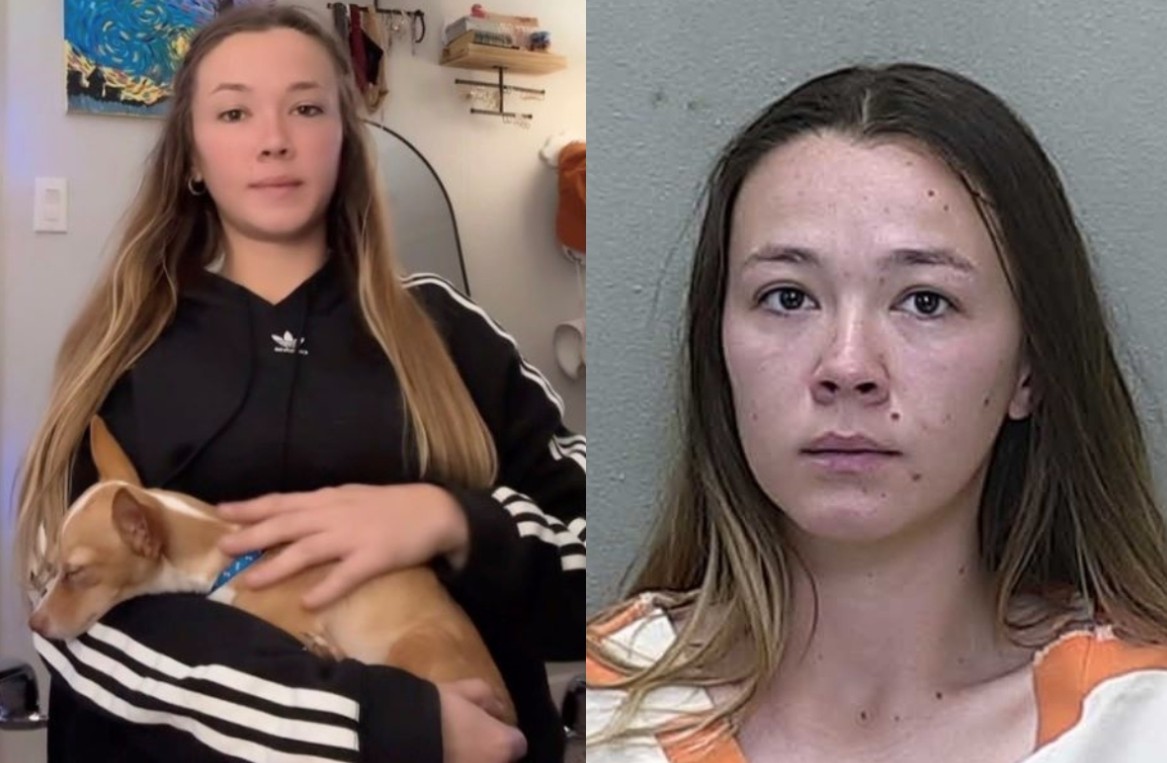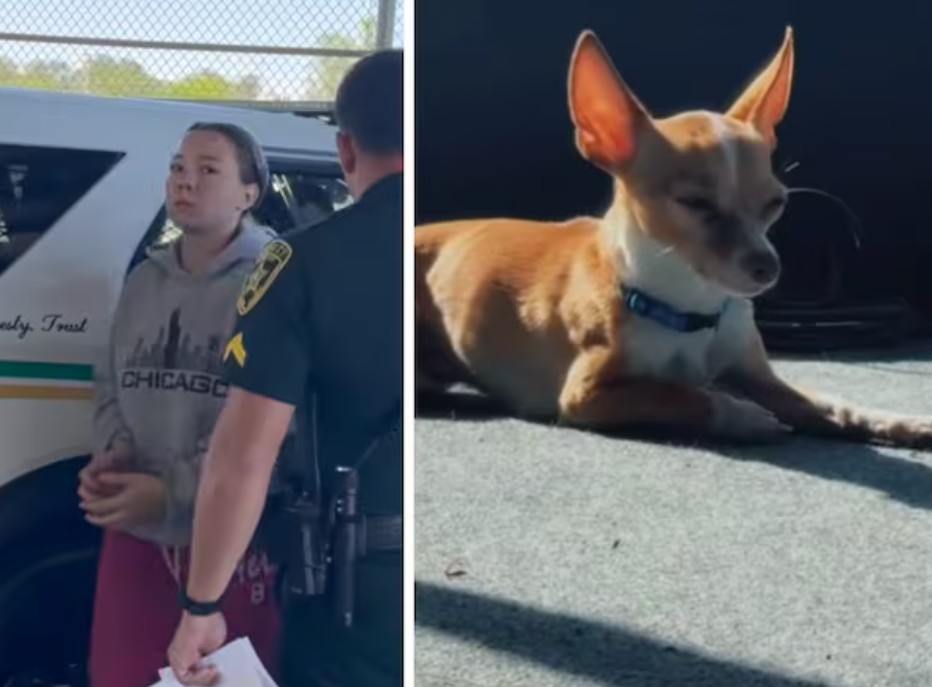Logan Guminski Dog Video and Online Exploitation
In a case that has shocked residents of Marion County and drawn widespread media attention, 27-year-old Logan Guminski was arrested after allegedly posting and selling videos of herself engaging in activity with a dog. The arrest, which occurred in late March, followed weeks of investigation after law enforcement received a disturbing anonymous tip. The allegations involve not only animal abuse but also the monetization of explicit material across social media and subscription-based platforms. The incident has raised serious ethical, legal, and community concerns, while also exposing gaps in how online platforms handle abusive content.

Contents
Investigation Process and Video
Detectives assigned to the case, including Detective Jordyn Batts, uncovered multiple photos and videos on Guminski’s accounts and devices. These materials confirmed the allegations and suggested that this was not an isolated act. According to the sheriff’s office, Guminski admitted during questioning that she considered herself a “content creator” and actively profited from producing such videos.
Logan Guminski Dog Video
Her activities reportedly extended beyond Instagram. Guminski told detectives that she used Fansly, a subscription-based platform often compared, to post explicit content. Additionally, she confessed to selling a specific video featuring herself and the Chihuahua to a user on Snapchat for $500. Detectives also discovered that she had videos involving other dogs stored on her phone, suggesting a disturbing pattern of behavior.
Detective Batts, who led the investigation, emphasized that while such cases remain shocking, they are unfortunately not rare. “Unfortunately this isn’t my first case of this nature,” Batts said. “It’s always shocking, it’ll never not be shocking, especially when you have to watch the video, but I have seen it before so it’s not out of the ordinary unfortunately.”
His statement reflects both the deeply troubling nature of the case and the reality that law enforcement continues to encounter incidents of animal abuse facilitated through digital platforms.
Background of the Case
The case against Guminski began on January 28, when the Marion County Sheriff’s Office received an anonymous tip. According to investigators, the tipster reported that Guminski had posted a video on Instagram depicting acts with a Chihuahua. The disturbing nature of the video immediately prompted authorities to take action, opening a formal investigation.

Social media, often a place for entertainment and self-expression, has unfortunately become a vehicle for darker and more dangerous behaviors. In this case, Instagram was allegedly used to distribute criminal material, drawing attention to the growing problem of how explicit and abusive content can slip through platform monitoring systems.
Law Enforcement and Arrest
On March 21, Guminski was arrested and booked into the Marion County Jail. She was formally charged with two felonies:
Court documents confirm that Guminski later posted a $10,000 bond and was released from jail pending further legal proceedings. While bond allowed her temporary release, her charges carry potentially significant legal penalties if she is convicted.
The arrest highlights the important role of community vigilance and anonymous reporting. Without the tip that first alerted deputies, the abusive activities may have continued undetected.
Statements from Authorities
Detective Batts’ remarks about the case underscore the psychological toll such investigations can take on officers tasked with reviewing explicit and disturbing material. While trained to maintain professionalism, officers are still human beings faced with confronting evidence of exploitation and cruelty.
The detective’s acknowledgment that this was not his first case of bestiality suggests a broader pattern of crimes involving animals in Florida and elsewhere. This raises questions about whether existing laws and online content safeguards are sufficient to prevent such acts from recurring.
Animal Welfare Concerns
One of the most pressing questions in the aftermath of Guminski’s arrest has been the welfare of the animals involved. Initial reports from the Marion County Sheriff’s Office incorrectly claimed that the dogs had been removed from the home. However, a correction later revealed that Marion County Animal Control officers never actually took custody of the animals.
According to county officials, animal control requires a court-issued warrant to seize animals from a private home. As of the latest report, court records did not show that such a warrant had been filed. This revelation has sparked frustration among community members who are concerned about the safety of the animals. Many argue that leaving the dogs in the suspect’s care, even temporarily, puts them at risk of further harm.
The procedural hurdle highlights a tension between protecting individual rights and ensuring the welfare of abused animals. Until a warrant is secured, Animal Control has no legal authority to remove the pets.
Community and Public Reaction
The case has generated widespread outrage in Marion County and beyond. Residents have expressed shock not only at the nature of the crime but also at the revelation that Guminski profited from exploiting animals online.
Animal rights advocates have been vocal in calling for immediate protective measures for the dogs. Many argue that the current legal framework, which requires a warrant to remove animals even in cases of alleged abuse, needs to be reconsidered.
Public discussion has also turned to the platforms used by Guminski. Instagram, Snapchat, and Fansly have all been scrutinized for their inability to prevent the distribution of such material. While these platforms maintain policies against abusive or exploitative content, enforcement often relies on user reports and can fail to prevent the initial spread of harmful videos.
Broader Implications
This case touches on larger issues of online exploitation and the role of digital platforms in enabling criminal activity. As subscription-based and social media platforms become increasingly popular, they have also become targets for misuse by individuals seeking profit through illegal or abusive acts.
For law enforcement, digital crimes involving animals present unique challenges. Not only must detectives navigate sensitive and disturbing material, but they must also contend with the difficulty of tracking online distribution, especially across encrypted or private messaging apps like Snapchat.
Moreover, this case underscores the importance of anonymous tips. Community members who report suspicious or abusive activity play a crucial role in uncovering crimes that might otherwise remain hidden.
Legal Path Forward
Under Florida law, bestiality and animal abuse are serious offenses. Animals is classified as a felony, and those convicted may face significant prison time, probation, and mandatory psychological evaluations. Additionally, the creation and distribution of explicit content involving animals is an aggravating factor that could lead to harsher sentencing.
As of now, Guminski awaits further court proceedings. Prosecutors will likely push for strong penalties given the evidence of repeated acts and the financial gain associated with the videos. Animal rights groups are expected to advocate for protective custody of the dogs and permanent restrictions on Guminski’s ability to own pets in the future.
The arrest of Logan Guminski has left Marion County grappling with shock, anger, and concern. At its core, the case is about the exploitation of animals for profit and the disturbing ways in which online platforms can be misused. While the legal process continues, the community is left with unanswered questions: Why were the animals not immediately removed from her care? Could social media platforms have done more to prevent the spread of the video? And what reforms are needed to ensure this does not happen again?
As the case moves forward in court, it serves as a sobering reminder of the darker side of online content creation. It also calls on society to strengthen safeguards for animals, reinforce community vigilance, and demand accountability from platforms that host user-generated content. Ultimately, the Guminski case is not only a test of the justice system but also a wake-up call for broader action against exploitation in the digital age.
Nghị Luận -Mẫu Bìa Bài Dự Thi Về Đảng Bí Quyết Thiết Kế Ấn Tượng, Trang Trọng Và Chuyên Nghiệp
BÀI DỰ THI LỚN LÊN CÙNG SÁCH HÀNH TRÌNH TRƯỞNG THÀNH QUA NHỮNG TRANG VĂN
Mẫu bài dự thi Giải Búa liềm vàng Hướng dẫn chi tiết và gợi ý thực hiện
Mẫu Bài Dự Thi Đại Sứ Văn Hóa Đọc 2019 – Hướng Dẫn Chi Tiết Và Gợi Ý Tham Khảo
Bài Dự Thi UPU Lần Thứ 51 Cơ Hội Tỏa Sáng Cho Tài Năng Viết Trẻ
Hướng Dẫn Toàn Diện Để Thành Công Bài Dự Thi Khoa Học Kỹ Thuật THCS
Bài Dự Thi Khăn Quàng Thắm Mãi Vai Em

